- Home
- Paul Christopher
Sword of the Templars Page 5
Sword of the Templars Read online
Page 5
Administrative assistant, she corrected curtly.
Administrative assistant, repeated Holliday.
Ive been with the university for forty-three years. I came here directly from the Albany Academy, said Ms. Branch primly.
Forty-three years. Late sixties, early seventies, which fit the hairstyle. The Albany Academy was almost as old as West Point, a place to keep the daughters of New York States rich and powerful until it was safe to let them out on their own. Shed turned to stone here, petrified like an insect in amber. Odd that the woman had come to work at SUNY rather than take classes; there was more to Ms. Branch than met the eye.
You were with Grandpa Henry all that time? Peggy asked.
I wasnt with your grandfather, Miss Blackstock. I worked for him. There wasnt the slightest deference in her voice; after forty-three years she probably had more dirt on more people than anyone else in the university. She didnt need job securityshe had gossip instead. Holliday smiled to himself. Good intelligence could take you anywhere.
Could we get into the office? Holliday pressed gently. Ms. Branch gave him a long, steady look.
If you must, she said, relenting. She opened the center drawer in her desk, took out a ring of keys, and stood up. Holliday and Peggy followed her to a closed office door on the far side of the room. A small plastic sign read simply: DR. HENRY GRANGER. Ms. Branch unlocked the door, opened it, and stepped aside.
Well be quick, promised Peggy.
Please, said Ms. Branch. Did she have cats to feed? Was it laundry day? Holliday offered her a diplomatic smile as he passed.
They stepped into the office. It was large and airy, one wall lined with pale oak bookcases, another with framed photographs, and a third with a cluttered bulletin board. Surprisingly the fourth wall had a window.
The office looked out across the SUNY ring road to Maytum Hall, one of the I. M. Pei buildings, the geometry in this case being a concrete semicircle with narrow glass slits at regular intervals. To Holliday it looked like an outsized version of one of the concrete bunkers Rommel had erected on the Normandy beachhead.
The ground between Thompson Hall and the concrete semicircle consisted of neatly manicured lawn, the occasional curving path, and trees planted here and there in case the symmetry became too overpowering.
Peggy checked out the trophy wall of pictures, and Holliday sat down behind the modern desk. It even had a computer terminal. He tried to boot it up, but it was password protected. He opened the center drawer and found an address book, which he began to flip through.
Weird picture, murmured Peggy, leaning into the wall for a closer look.
Weird how? Holliday asked, still flipping through the old address book.
Its a photograph of three guys, with Grandpa Henry at one end in civilian clothes and the other two guys in uniform. Army, I think. British. From the background Id say it was taken somewhere in North Africa. Cairo maybe. Could be Alexandria.
So? Whats weird about that? Henry was a medieval scholar. Hes traveled all over the world.
The inscription says: Derek Carr-Harris, Leonard Guise, Donald Mitchie, April 1941. Then the word Postmaster with a capital P.
Holliday flipped through the address book. There was a U.K. listing for a D. Carr-Harris but nothing for Guise or Mitchie.
Interesting. Postmaster sounds like it might have been a code name. But we werent at war in April 41. Whats Henry doing hanging around in Egypt with a couple of Brits in uniform eight months before Pearl Harbor? He started off in the OSS, the Office of Strategic Services. The OSS wasnt even organized until 1942June or July.
Curiouser and curiouser as Alice said down the rabbit hole, Peggy murmured, looking at the next picture on the wall. Heres another one with Carr-Harris and Grandpa Henry in it. Neither one of them is in uniform.
What is it? Holliday asked, continuing to rummage through the drawer. He found Uncle Henrys passport and checked the dates. It was still valid. There were four stamps on the last page: one going into Canada at Niagara Falls, an entry stamp from Heathrow Airport in London two days later, and another entry stamp into Frankfurt dated a week after that. The last stamp showed his reentry into the U.S. three weeks following his entry into Germany. All the stamps were from three months ago.
Theyre standing in this huge room with a gigantic open window you could fly an airplane through. There are mountains in the background, said Peggy, describing the photograph.
Is there an inscription?
Yes. It says Berghof 1945.
Youre kidding me! Holliday stood and went to the wall of photographs. He gazed over Peggys shoulder and looked at the picture. Uncle Henry and Carr-Harris were little more than silhouettes, insignificant against the grotesquely out-of-scale room they were standing in. It really was enormous. The snowy peaks of the Salzburg Alps were clearly etched in the distance.
Remind me where Berghof is again? Peggy asked.
Not where, what, explained Holliday. The Berghof was Adolf Hitlers name for the summer house in Bavaria that Broadbent mentioned. The Führer was trying to be a man of the people. It means Mountain Farm.
Which explains the flag the sword was wrapped up in, said Peggy. But what was Grandpa doing there with that Englishman? What was he doing there at all? She paused. I thought the lawyer said his father was with Grandpa when he found the sword.
Holliday nodded. So did I.
So where is he?
A lot of questions about Henry today and not enough answers.
So what do we do now?
Ask more questions, said Holliday.
6
Holliday stepped out of the office. Ms. Branch, the secretary, was sitting at her desk. A large purse stood waiting beside her computer screen, now shrouded with a plastic cover. She was reading a pale green hardcover book. It looked very old; Holliday couldnt see the title. Ms. Branch looked up, closing the volume, her index finger inserted to keep her place.
Holliday saw the cover. There was a picture of a beautiful young woman with long auburn hair inset into the fabric. The title was stamped beneath it in faded gold: Anne of Green Gables by L. M. Montgomery. Surprise, surprise; it seemed there was still a romantic little girl hidden inside the secretarys arid soul. The book looked as though it might have come straight off Uncle Henrys shelf of childrens books.
Yes? Ms. Branch said.
According to his passport my uncle traveled to Canada a few months ago.
Thats right, in March.
She didnt even have to consult a day book. Interesting.
Do you know where he went?
Toronto.
Do you know why?
Yes, said Ms. Branch. He went to see a colleague at the Centre for Medieval Studies. The University of Toronto. Dr. Braintree.
And then he went on to England and Frankfurt?
Yes.
Any particular reason?
Certainly, said Ms. Branch, her tone crisp. The Masters Lunch.
The Masters Lunch?
Balliol College, Oxford. They have a lunch for the senior Old Members every two or three years.
He went to England to have lunch? Holliday asked.
He had a great many friends at Oxford, said Ms. Branch.
Any in particular?
I wouldnt know. Icy.
What about Frankfurt?
Are you asking me if I know why the professor went to Germany?
Yes.
I have no idea, said Ms. Branch. She stiffened in her ergonomically designed chair. And Im not sure I like being interrogated.
Im sorry, said Holliday. I didnt mean it to sound that way.
Im afraid it did.
Holliday paused. Something was nibbl
ing at his subconscious. More than a year ago Henry had been diagnosed with early-stage macular degeneration: his eyes were failing. Hed voluntarily stopped driving. He tried to visualize his uncle riding the Greyhound. Somehow it didnt compute.
How did he get to Toronto?
I drove him to Buffalo, said Ms. Branch. He caught the afternoon train.
A little bit of color flushed her cheeks. Her eyelashes fluttered slightly. She clutched the book in her lap like a drowning sailor. She looked almost demureBambi caught in the headlights of an oncoming car. Years peeled away in an instant. Suddenly, Holliday got it. Curtains parted, the fog lifted, the veil dropped from before his eyes, and all was revealed.
Of course.
The old copy of Anne of Green Gables probably had come from Uncle Henrys shelves. They were lovers, or had been once upon a time.
It seemed strange nowand maybe high on Peggys ee-uw scalebut not so strange if you went back forty-three years to young Caroline Branchs arrival in Fredonia, hormones freshly released from the all-girl confines of the Albany Academy.
Holliday did the math: the mid-sixties, the Playboy Philosophy, the Summer of Love, and all that malar key; she would have been nineteen or twenty and fresh as a daisy. Uncle Henry would have been in his forties, very much the pipe-smoking debonair professor, maybe even a little bit of distinguished gray at the temples. Hugh Hefner with an education.
Teacher and student for as long as it lasted and maybe longer than that. It wouldnt be the first time in academia that a professor had bedded a coed. Henry had never married and, according to the nameplate on her desk, neither had Ms. Branch. Maybe it really was an old-fashioned love story. He stared at the secretary with fresh eyes.
Do you have any other questions? Ms. Branch asked stiffly, perhaps reading his mind a little.
Not right now.
It really is getting quite late, she prompted baldly.
We wont be much longer.
Holliday turned on his heel and went back into the office, shutting the door behind him. Peggy was sitting in front of Henrys computer, trying passwords.
Try Caroline, said Holliday, keeping his voice low.
What? Peggy asked, brow wrinkling.
The password. Try Caroline.
But . . .
Later. Just try it.
Peggy gave him a look, but she typed the name into the slot and hit return.
Nothing, she said. She sounded almost relieved.
Try Caroline Branch, all one word, he instructed. She typed. She stared at the screen.
Ill be damned, she whispered. It worked.
I think they were lovers back in the day, explained Holliday quietly.
Peggy snorted. Grandpa, you old dog!
What kind of files do you see?
The usual stuff. Looks like a lot of old lectures in his My Documents files. One called Letters, another labeled Expenses. Graduate students. Tutorials. Nothing out of the ordinary. Nothing about a sword anyway. She glanced up at Holliday. Presumably thats what were looking for.
Is there an e-mail account?
Grandpa Henry using e-mail? Come on, now.
Grandpa Henry having a love affair with Ms. Branch? Holliday grinned.
Point taken, said Peggy. Ill check. She tapped a few keys. Youre right. Theres a Hotmail account: [email protected].
Whats the last message he sent?
Its to [email protected], said Peggy. Sent a week ago.
Whats the subject line?
Its a thank-you for a reply from the 123 person. The subject line for the original message is QUERY.
What does it say?
It says: Dear Henry, as I suggested to you on your visit it looks like you have some early combination of a Book/Masonic-Pigpen/Elian problem going on, but without the key Im afraid its probably indecipherable. Theres no mention of it anywhere in the literature that I can find. Theres a fellow in Jerusalem named Raffi Wanounou who knows a lot about crusader castles; maybe he can point you in the right direction. He works at the Institute. Sorry I cant be more help. It was nice seeing you in March. Hope things went well with Donald. Keep in touch. Its signed Steven Braintree. Peggy made a face. Theres such a name as Braintree?
Its part of Metropolitan Boston. John Quincy Adams was born there, said Holliday. Apparently this particular Braintree is a professor at the University of Toronto.
Whats all this Book/Masonic-Pigpen/Elian stuff? Peggy frowned. Its all gobbledygook.
I think hes talking about codes, answered Holliday. You ever read a book called The Key to Rebecca by Ken Follett? They did a TV movie of it back in the eighties with Cliff Robertson.
Not my era.
It was about a code based on a Daphne du Maurier novel called Rebecca.
Laurence Olivier and Joan Fontaine. 1940. Alfred Hitchcock.
The forties is your era?
Absolutely. She grinned. All that noir stuff. Great lighting, everybody smoking cigarettes.
I thought you quit.
I did. Sort of.
Holliday sighed. Peggy was going off on one of her tangents. He headed her off at the pass.
Anyway, the book was used as the key for the code. I think thats what the e-mail means when Braintree refers to book. Pigpen is sometimes called the Masonic Code, which sort of fits in with the sword. I have no idea what Elian refers to.
Did Grandpa have some particular interest in codes?
Not that I knew of, said Holliday, shaking his head.
They spent another few minutes browsing through Uncle Henrys files without success, then gave it up, retreating under the barrages of psychic artillery coming through the closed door from Ms. Branchs direction. They drove back to the Hart Street house and spent the next two hours going through Uncle Henrys study and anywhere else they could think of, looking for anything else that might shed some light on the sword wrapped in the flag and Henrys reasons for hiding it away so carefully, including a close look at the file of correspondence in the old mans desk. The only thing they came up with of any interest at all was Henrys invitation to the Balliol College Old Masters Lunch with an obscure message scrawled on the back:
Oxford 4:20 Abingdon Express-40
bus/Reading train/Reading toward
Carmarthen change Newport toward Arrive
Trains WalesHolyhead to Leominster. Will
pick up. No cabs. LEspoir, Lyonshall, Kingston,
Herts. 44-1567-240-363
Directions from Oxford to Leominster, in Her efordshire, said Peggy, pronouncing it Lemster. I know its pronounced that way because a Welshman once corrected me.

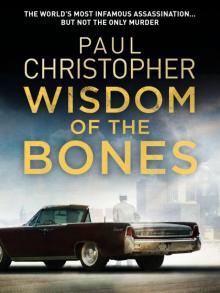 Wisdom of the Bones
Wisdom of the Bones The House of Special Purpose
The House of Special Purpose The Second Assassin
The Second Assassin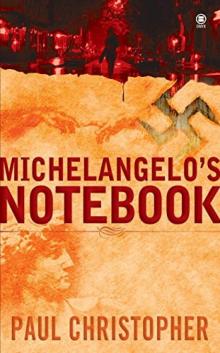 Michelangelo's Notebook
Michelangelo's Notebook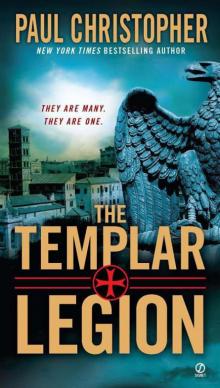 Templar Legion
Templar Legion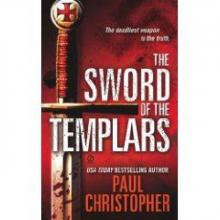 The Sword of the Templars t-1
The Sword of the Templars t-1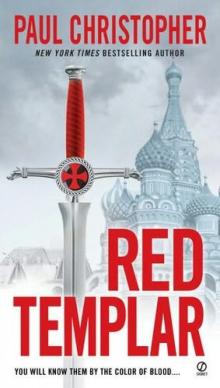 Red Templar
Red Templar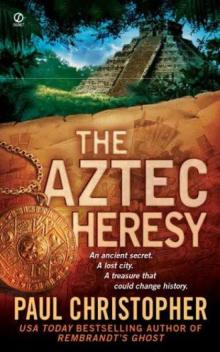 The Aztec Heresy
The Aztec Heresy The Templar Legion
The Templar Legion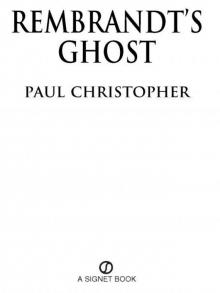 Rembrandt's Ghost
Rembrandt's Ghost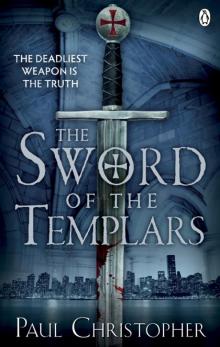 Sword of the Templars
Sword of the Templars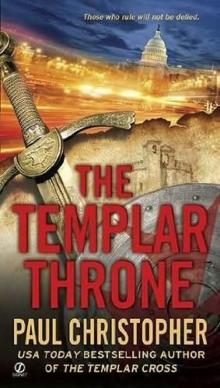 The Templar throne t-3
The Templar throne t-3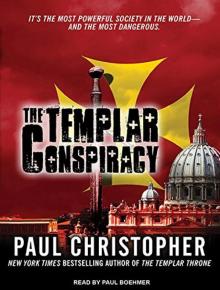 The Templar Conspiracy
The Templar Conspiracy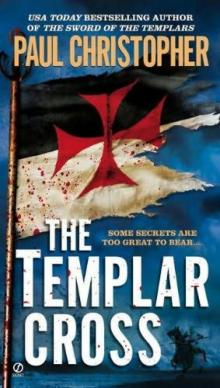 The Templar Cross t-2
The Templar Cross t-2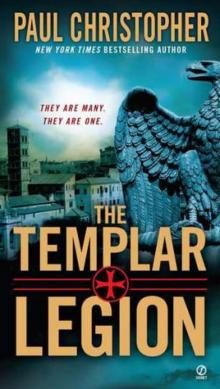 The Templar Legion t-5
The Templar Legion t-5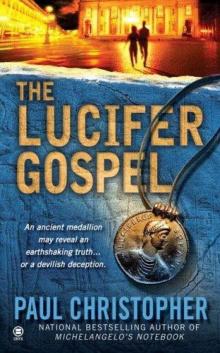 The Lucifer Gospel
The Lucifer Gospel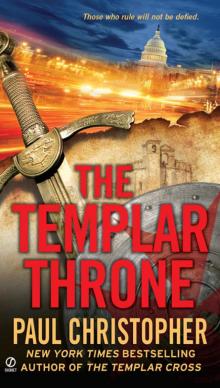 Templar Throne
Templar Throne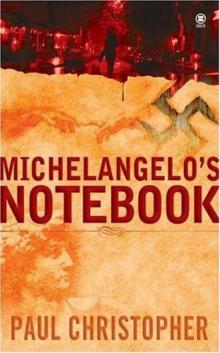 Michelangelo_s Notebook fr-1
Michelangelo_s Notebook fr-1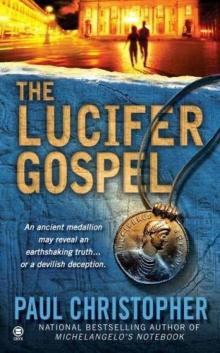 The Lucifer Gospel fr-2
The Lucifer Gospel fr-2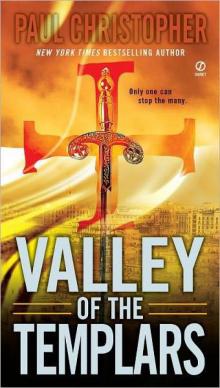 Valley of the Templars ts-7
Valley of the Templars ts-7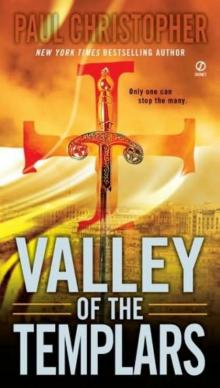 Valley of the Templars
Valley of the Templars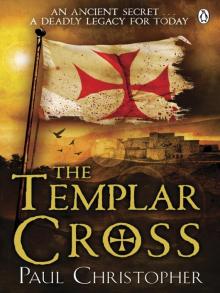 Templar Cross
Templar Cross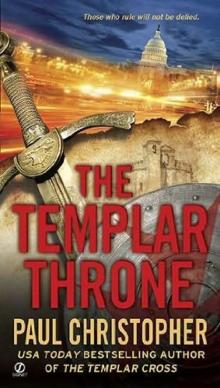 The Templar Throne
The Templar Throne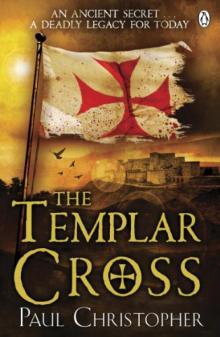 The Templar Cross
The Templar Cross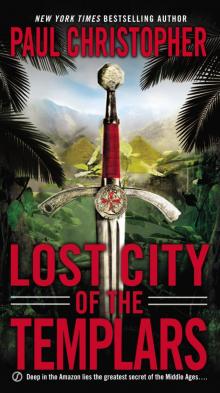 Lost City of the Templars
Lost City of the Templars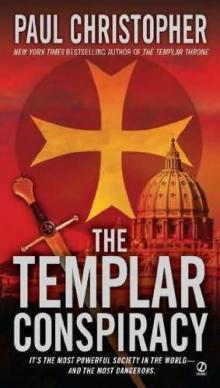 The Templar conspiracy t-4
The Templar conspiracy t-4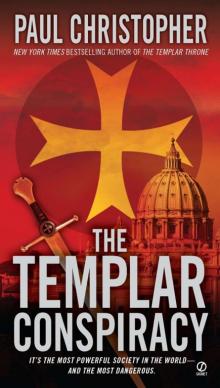 Templar Conspiracy
Templar Conspiracy